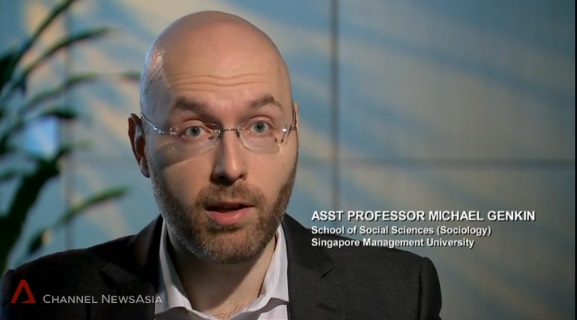
With the evolving modus operandi and recruitment methods of terror networks, the threat of the home-grown terrorist and lone-wolf attacks raises major security concerns for governments around the world. To address this important issue, Channel NewsAsia recently commissioned a two-part documentary series called Terror Unmasked that explored the nature of the threat to the region, the measures taken by Singapore to both prevent and neutralize terrorism, as well as to deal with its aftermath. As part of the series, they interviewed one of our SOSS faculty members – Assistant Professor Michael Genkin, who regularly teaches an undergraduate course on the sociology of terrorism and political violence.
In Part 1 of the documentary that was televised on 4 October 2016, Prof. Genkin warned of falling into the terrorists’ trap, a tactic known as jujitsu politics, where terrorist organizations use the power of the state against it by provoking the state to respond in such a disproportionate way that it inadvertently rallies others to join the terrorists’ cause. He also shared his views on other issues such as the effectiveness of shutting down suspicious social media accounts and ways to help those who have been led astray back to the right path.
In Part 2 of the documentary that was televised on 11 October 2016, Prof. Genkin discussed how we can use social network theory to develop societal resilience to terrorist attacks. He emphasized the need to facilitate strong interracial and interreligious ties that would buffer against rumours, recriminations, and inter-communal tension that may result from a terrorist attack. “We need to move away from mere tolerance to … creating interracial social ties… [that are] deep and meaningful… creating those kinds of ties across society would be especially important to create resilience in case there is an attack that is aiming to polarize society,” he said.
 Photo Credit: Channel NewsAsia
Photo Credit: Channel NewsAsia